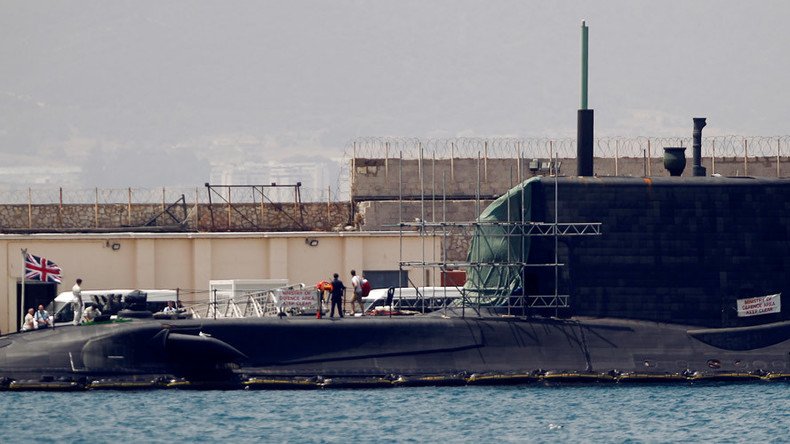BAE to begin work on UK’s multi-billion pound nuclear fleet

Defence Secretary Michael Fallon has revealed details of a £1.3 billion deal with BAE systems to start work on the UK's new nuclear submarine fleet under the Successor program.
DefSec: Construction work will start on UK’s new nuclear submarines & £1.3bn new investment with @BAESystemsplchttps://t.co/0Ps98NypsSpic.twitter.com/aVxqUk0VD2
— Ministry of Defence (@DefenceHQ) October 1, 2016
Successor is the replacement submarine to the Vanguard Class and was given the green light in July when parliament voted to renew the controversial Trident weapons system.
The vote, which ratified plans underlined in the 2015 Strategic Defence and Security Review, authorises the construction of four submarines to replace the ageing fleet at an estimated cost of £31 billion.
READ MORE: British lawmakers vote to renew Trident nuclear program
Fallon revealed that this BAE deal will allow the project to move into ‘Delivery Phase 1’, meaning work can start on the “auxiliary machine space” of the first submarine; consisting of switchboards and control panels for the reactor.
The budget also allocates funds for the continued design of the submarine, associated purchases and infrastructural investments at the BAE Systems yard in Barrow-in-Furness where the submarines will be built.
Fallon will visit the yard next week for the ceremonial, ‘steel cut’, to mark the start of work.
Manufacturing work on the Successor programme will begin next week pic.twitter.com/dvG2n0p3Wh
— BAE Systems Maritime (@BAES_Maritime) October 1, 2016
The Defence Secretary said the ballistic missile submarines are “the ultimate guarantee of our nation’s safety“ and this commitment along with the increasing defense budget shows “this government will never gamble with our national security.”
“We cannot know what new dangers we might face in the 2030s, 2040s and 2050s so we are acting now to replace them."
The massive spend on Britain’s nuclear arsenal is part of a £178 billion equipment plan, supported by a defense budget that will rise every year until the end of the decade, according to the Ministry of Defence (MOD). This will see Britain meet its NATO commitment to spend two per cent of GDP on defense.
The current fleet of nuke subs are stationed at Faslane naval base on the west coast of Scotland. They carry up to eight missiles and 40 warheads. The next generation of ballistic missile submarines are being touted by defence chiefs as among the most technologically advanced in the world, and are due to come into service by the early 2030s with a lifespan of 30 years.
The Successor submarines will be the largest submarines ever built for the @RoyalNavypic.twitter.com/fwTAXUClJz
— BAE Systems Maritime (@BAES_Maritime) October 1, 2016
“The Successor programme is the MOD’s biggest project and it will require teamwork, tremendous skill, commitment from our industrial partners and the UK supply chain, and close collaboration with our US allies to deliver it successfully,” said Tony Douglas, Chief Executive Officer of the MOD’s Defence Equipment and Support organization.
Hundreds of companies will be involved in the program, with almost 85 percent based across the UK, according to the MOD.
New graffiti in #Helensburgh#trident#faslane#royalnavy#politics#uk#submarines#nucl… https://t.co/3VQNw9vx1Apic.twitter.com/shxK6fdgCj
— Bethany Scott (@bethanyrscott) September 21, 2016
However, concerns have been raised about the ambitious project from the government’s own watchdog and former Royal Navy officers.
Last month, Commander Rob Forsyth who served on British nuclear submarines in the 1960s and 1970s told RT that the massive investment to the Trident system is depriving the British Army of funding in other vital areas.
The Infrastructure and Projects Authority meanwhile warned that the project faces “fearsome technical problems” and was likely to vastly exceed its budget.
READ MORE: Trident nuke renewal plan blown out the water by govt’s own watchdog












